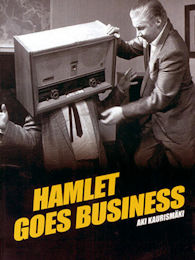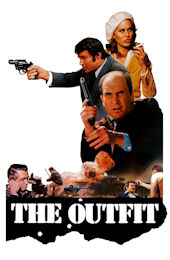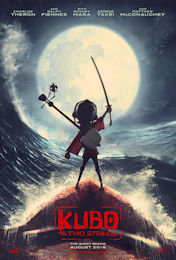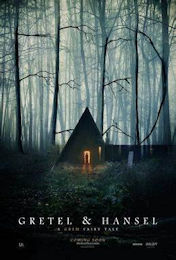
 I think I first heard of Nekromantik in the '90s, mentioned in whispers in the same breath as Salo or any number of other rare and forbidden films. I didn't think much about the film again until I heard director Jörg Buttgereit was doing some sort of effects for Skinny Puppy's live reunion at a festival two decades ago. I was left to wonder what he really had to contribute and what he was really capable of in the first place. I was more interested in watching documentaries about the West German underground scene from the '80s instead of this, but figured it might behoove me to actually see the movie before hearing others talk about or with Buttgereit. It probably wasn't worth the trouble.
I think I first heard of Nekromantik in the '90s, mentioned in whispers in the same breath as Salo or any number of other rare and forbidden films. I didn't think much about the film again until I heard director Jörg Buttgereit was doing some sort of effects for Skinny Puppy's live reunion at a festival two decades ago. I was left to wonder what he really had to contribute and what he was really capable of in the first place. I was more interested in watching documentaries about the West German underground scene from the '80s instead of this, but figured it might behoove me to actually see the movie before hearing others talk about or with Buttgereit. It probably wasn't worth the trouble.
Many go to great lengths to try to paint this film as satirical and transgressive art, making a social commentary about German society, but that seems like a combination of self-delusion and working backwards from the answer to find the problem. Nekromantik feels neither transgressive or as shocking as those that banned it or spoke about it in hushed whispers ever implied. It's a tawdry, weak, poorly-made, badly-edited student film writ large. One of the main reasons I watched the movie was because I needed to go to bed, so looked at the shortest films I had available to watch. At a paltry hour and a quarter, you can barely even call Nekromantik a movie. And, yet, every one of those 75 minutes felt like three. I could have watched Branaugh's Hamlet or Wyatt Earp or the entire fucking MCU catalog gladly in what felt like less time, but watching this "film" was an absolute chore. By the end of the movie, the beginning felt so distant and disconnected that I felt like I had watched it on a different day. How could the sub-Manos opening driving scene and absurd crime scene cleanup have taken place in the same timeline as the endless scenes of nothing, birds flying, people sitting, terrible movies-within-movies, dream sequences, the camera never cutting for 30 seconds after any reasonable editor would have moved on?
I'm sure there's cretins out there whose gorehound nostalgia or devil's advocate art pretensions will fight for the honor of this shitty, lame, boring little movie. I'm sure there are plenty of those who are still raising their skirts and jumping onto chairs as the mention of this horrifying ordeal. This is a world where people find Megan Is Missing to be life-altering and compelling, after all. There are plenty of dull, fragile white-bread individuals whose psyche can't stand up to the very notion of necrophilia, much less any attempted visualization of it. There's plenty of people freaking out about the actual footage of the killing, skinning, and dressing of a rabbit in this film. (Don't ever think about where you food comes from, you first world pussies.) Meanwhile, there's probably many that give this movie credence exactly because it causes those reactions. It is unworthy of them all.
It is ugly. It is boring. It is exceptionally poorly-written, badly-filmed, mindlessly-edited, and painful to watch for all the same reasons that someone's unabbreviated vacation footage is. You have to be unbelievably dim or relentlessly censorious to have a reaction for this sub-movie. There are homemade movies filmed on VHS with no lighting, bad sound, and no professional (or amateur) actors floating around on Amazon right now that you should be more entertained by. And if you really need to see a movie that deals specifically with necrophilia in a more mature, less incompetent way, watch Deadgirl or something. Just don't bother adding to the legend of this waste of everyone's time.


 I can't begin to imagine how many times and in how many versions I've watched "Hamlet" performed. I was probably shown the Mel Gibson version in school. Eventually, I saw Branaugh's Hamlet in the theater and have watched it probably a dozen time since, along with a variety of other versions of the play. Depending on how abridged the play may be, it can range any amount of time upwards of five hours. Last night, I got through a more modern "adaptation" in a mere hour and a half.
I can't begin to imagine how many times and in how many versions I've watched "Hamlet" performed. I was probably shown the Mel Gibson version in school. Eventually, I saw Branaugh's Hamlet in the theater and have watched it probably a dozen time since, along with a variety of other versions of the play. Depending on how abridged the play may be, it can range any amount of time upwards of five hours. Last night, I got through a more modern "adaptation" in a mere hour and a half.
 It probably changes my opinions about this film substantially that I've read the novel "The Outfit", as well as close to a dozen of (Donald E. Westlake as) Richard Stark's other Parker novels. Most people may be familiar with Parker through a few of the other adaptations of Richard Stark's novels. "The Hunter" was adapted into 1967's Point Blank (with Lee Marvin) and 1999's Payback (with Mel Gibson). The Gibson film is the most accurate story-wise, at least in Brian Helgeland's director's cut of the film that was eventually released. Though it's a very modern adaptation, the 2013 Parker at least gets credit for being the only Parker film to not change Parker's name. Also, it does a good job of capturing the feel of the Parker novels, often revolving around Parker committing a well-planned crime of some kind, getting double-crossed, and then seeking revenge to retrieve what he's owed.
It probably changes my opinions about this film substantially that I've read the novel "The Outfit", as well as close to a dozen of (Donald E. Westlake as) Richard Stark's other Parker novels. Most people may be familiar with Parker through a few of the other adaptations of Richard Stark's novels. "The Hunter" was adapted into 1967's Point Blank (with Lee Marvin) and 1999's Payback (with Mel Gibson). The Gibson film is the most accurate story-wise, at least in Brian Helgeland's director's cut of the film that was eventually released. Though it's a very modern adaptation, the 2013 Parker at least gets credit for being the only Parker film to not change Parker's name. Also, it does a good job of capturing the feel of the Parker novels, often revolving around Parker committing a well-planned crime of some kind, getting double-crossed, and then seeking revenge to retrieve what he's owed.
 My next choice to watch with my five-year-old was Kubo And The Two Strings, largely because of the impressive stop-motion model work done in the film. They're not really making movies like this anymore and it seemed thematically more interesting than your average kid's film.
My next choice to watch with my five-year-old was Kubo And The Two Strings, largely because of the impressive stop-motion model work done in the film. They're not really making movies like this anymore and it seemed thematically more interesting than your average kid's film.
 My five-year-old decided that we should watch Gretel & Hansel today. I'd probably pointed out that it was a "spooky movie" to her and the rating was only PG-13, so I figured she'd be perfectly fine watching it. Given a lot of the stuff she's watched, I didn't figure it'd be a problem, beyond the fact that it might bore her.
My five-year-old decided that we should watch Gretel & Hansel today. I'd probably pointed out that it was a "spooky movie" to her and the rating was only PG-13, so I figured she'd be perfectly fine watching it. Given a lot of the stuff she's watched, I didn't figure it'd be a problem, beyond the fact that it might bore her.